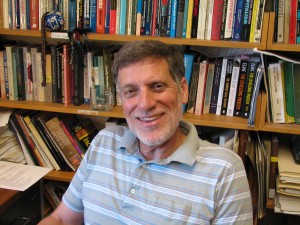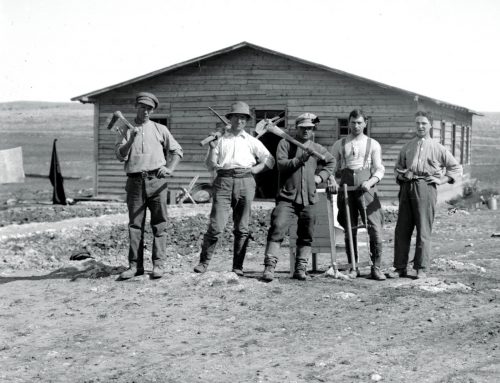
Prof. Joel Migdal has launched a new website as part of a more active online presence.
Prof. Joel Migdal has had quite a busy spring. Not only did he publish his latest foreign policy study, Shifting Sands: The United States in the Middle East (Columbia University Press); he has also just launched a new website, joelmigdal.com, with the support of the Stroum Center’s Faculty Digital Fellowship.
Here is my interview with Prof. Migdal, the Robert F. Phillip Professor of International Studies in the Jackson School, and longtime faculty for UW Jewish Studies. Check out his interactive website, and stay tuned for updates on the exciting online projects soon to be completed by our other 2013-14 Faculty Digital Fellows!
1) HP: Congratulations on launching your new website, joelmigdal.com! What are your goals for the new site? Who do you think will be interested in checking it out?
JM: For years, I have been receiving questions dealing with international affairs, generally, and the Middle East, specifically, via emails and in informal sessions with undergraduates. My hope was to build the website to bring a question-and-answer format to a much broader audience. I saw the website, too, as a platform for letting a wider audience know about my recent blogposts and publications, like Shifting Sands. I am not quite sure who will actually visit the site, but my hope is that students and those who read widely on the Middle East and international affairs will gravitate to it.
2) HP: I love all the interactive pieces on your new site, like the “Ask a Question” button and the short videos. Did you enjoy the process of creating a customized website? How does a web design project compare with, say, writing a book?
JM: I received a Jewish Studies Digital Fellowship, which gave me the opportunity to gain the skills to build (and maintain!) the site. The whole process was very exciting and confidence-building for someone like me, with limited technical savvy. It was nothing like writing a book—I think I am not nearly advanced enough to bring the creativity to this process that I do in writing a book. Still, I really did enjoy the construction, perhaps most of all actually getting various posts as part of the slider on the homepage, bringing people’s attention to what lies beyond.

Migdal’s interactive website includes an “Ask a Question” feature and plenty of videos.
3) HP: As one of four professors participating in the Faculty Digital Fellowship at the Stroum Center for Jewish Studies this year, you received specialized training in online publishing, digital technology, and new media. What were the highlights of this training for you?
JM: I most looked forward to hearing about other fellows’ projects—the creation of sites on medieval Sephardic foods
4) HP: You’re now writing regular blog posts and have a Twitter feed (@JoelMigdal). Would you have predicted five or ten years ago that this type of online presence would be part of your academic profile?
JM: I certainly would not have predicted this. I do feel, though, some ambivalence about this sort of web presence, just as I have been equivocal about email for the last decade. To be sure, they make me more accessible and build an audience for what I write. What author and teacher could ask for more? At the same time, these are time-consuming endeavors, forcing me to be all-the-more vigilant about finding time for my first passion, writing books.







Leave A Comment